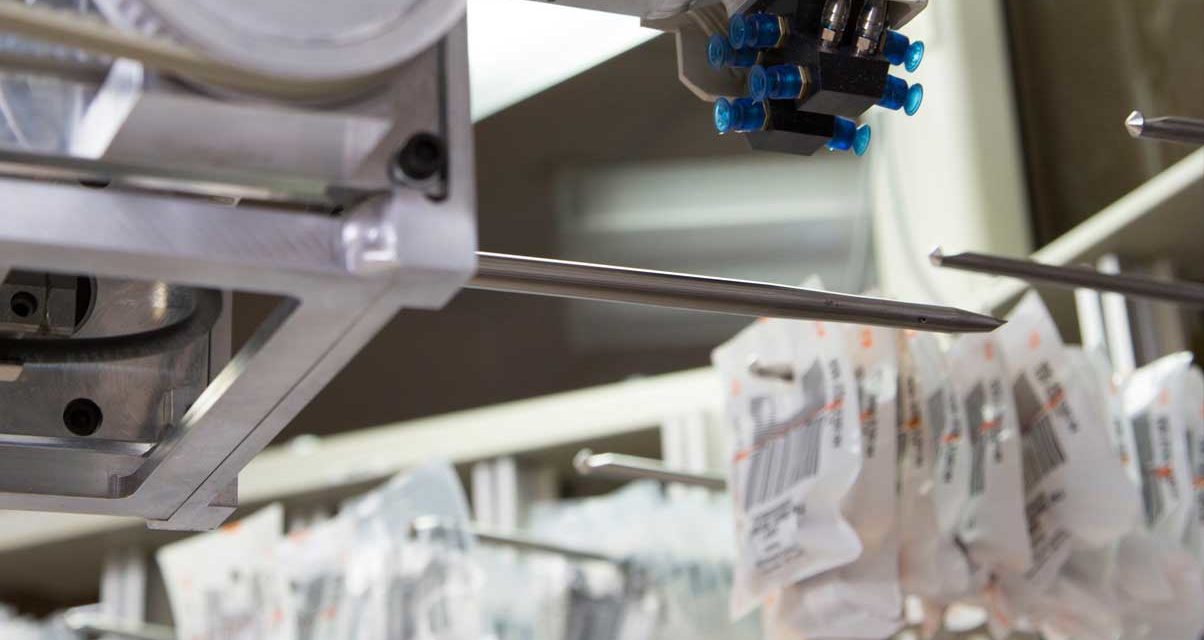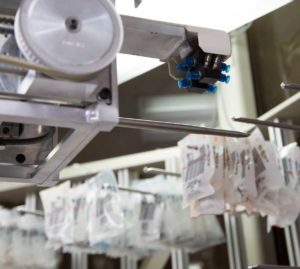by Rebekah Cartwright
Imagine a world where humans aren’t the only ones who can drive cars. Imagine a world where the opposing soccer team wasn’t made up of other people, but the competition was just as intense. Imagine a world where the person doling out your prescription wasn’t actually a person at all.
Sounds like a futuristic fantasy, right?
Except that that world is ours.
In recent years, technological advances have allowed for artificial intelligence to become a more regular part of our lives. From Tesla’s introduction of the self-driving car to IBM’s Jeopardy-winning super computer Watson, to the iPhone’s Siri, artificial intelligence is making its way into headlines, and also our homes, offices, vehicles and hospitals.
Artificial intelligence has reached Carroll County too, with local businesses and individuals using it to make their lives easier.
“Alexa, add this event to my calendar,” local businessman Jason Stambaugh says on a typical morning at work. Within seconds, Alexa has added it to his calendar. A few minutes later, he asks her to put on some music. Later in the day, she reads the news to him. If it gets a little too cold in his office, she can adjust the thermostat for him.
Alexa really is the perfect personal assistant. No matter that she is not a person.
Alexa, or the Amazon Echo, was released in the U.S. in the 2015. Similar to the iPhone’s Siri, the Amazon Echo device responds to basic commands and questions, utilizing various apps. It’s a form of artificial intelligence that has made the lives of people, like Jason, a lot easier.
“The Amazon Echo is the perfect office assistant. It’s a force multiplier; it allows me to be more efficient. I think it’s a revolutionary technology,” Stambaugh, the founder and CEO of LaunchGen, explains.
He bought the Amazon Echo system on Amazon Prime Day, and hasn’t looked back since. He’s found that Amazon has continued to roll out new features and functions, making Alexa all the more helpful. And, while the Amazon Echo system costs around $200, it’s much cheaper than hiring an assistant. It’s not all that different, though, than having someone else in the office with him.
“It has become like having another human in the office. You feel very isolated working from home. It’s nice to feel like there’s someone else listening to me,” he describes.
Not only that, but Alexa is smart. She picks up on the nuances of what music and podcasts Jason likes and is able to recognize his voice patterns.
“She gets to know what I like, and then curates information for me from a variety of apps. It’s awe-inspiring at first,” he explains.
In a world where cars are beginning to drive themselves, robots can teach themselves to play soccer, and super computers can beat humans at trivia, it’s not that hard to believe that the “perfect” personal or medical assistant’s intelligence is artificial.
Stambaugh predicts that Artificial Intelligence will continue to rise in prevalence in businesses and industry, as well as our daily lives.
“This type of technology is novel. It’s new. It’s fun. And it’s early. Artificial Intelligence will begin to infiltrate every type of product,” he predicts.
According to William Warburton, professor of Computer Information Systems at Carroll Community College, that’s part of what makes Artificial Intelligence so controversial.
“We’ve been able to build intelligence to maximize efficiencies and to eliminate the workforce. If you look at the auto industry, robots have replaced the assembly line worker,” Warburton explains.
From assembly line workers to personal assistants to medical assistance, robots have been replacing jobs for years.
Up until now, AI has primarily been applied to very limited contexts such as playing Chess or recognizing objects in images, where there isn’t much scope for the system to do much damage.
Even journalists risk losing their jobs to robots. The paragraph above was not written by the author of this article, but rather computer software called Dr. Essay that automates everything from blogs to articles to college papers. With just the click of a few buttons, a paragraph, like the one above, is generated from the system’s database. In recent years, news outlets like the Associated Press have announced their implementation of artificial intelligence programs to automatically generate articles, which then get published.
The scary thing is that the articles are usually indistinguishable from ones that actual human journalists write, but are usually more accurate and grammatically correct, due to the high levels of accuracy of these programs.
But how is this possible? How can a machine learn to know and do things like humans do?
Warburton looks to IBM’s Watson to explain this. In 2011, the world watched as Watson, a super computer made by IBM, beat Jeopardy’s best at the popular trivia game.
“It starts with a natural language that computers can understand and learn from. Watson had to have a huge amount of knowledge. He had to pick up on several clues and had to analyze all of the other data just like the other contestants. It had to analyze that data, sift through it, and decide on an answer,” he explains.
Warburton believes that this is just the beginning with artificial intelligence and its role in businesses. He believes that in the future we will continue to see robots and artificial intelligence taking the place of human roles, even doctors.
“Think of a robot as a doctor. Artificial machines would replace workers in diagnosing diseases. How accurate would they be?” he wonders.
While robots are not doctors yet, they’ve been infiltrating the medical industry, with robots even assisting everywhere from the pharmacy to the operating room. The da Vinci robot, for example, assists surgeons in minimally invasive procedures. The surgeon will operate the machine, which will in turn, operate on the person. The idea of using robots in the medical field seems far-fetched, but it’s closer to home than you think.
Carroll Hospital uses the Robot Rx system in its pharmacy, where the robot helps with dispensing medications. Using a bar-code system, the Robot Rx helps with inventorying supplies, organizing medications, and filling prescriptions, with 99.9% accuracy. Robot Rx helps to free up the pharmacists’ time so that they can work directly with patients, while also preventing human errors with medication dispersion.
The possibilities are endless when it comes to what artificial intelligence could do. Warburton imagines that someday we’ll have mobile versions of Alexa that will roam our homes and take care of small tasks, like cleaning and feeding our pets.
“It’s not quite there yet, but it’s an interesting thing to think about. This is an interesting field to be in and to consider how machines can think and feel like us,” he says.
According to Warburton, the biggest concerns people have about artificial intelligence is that the machines we build will eventually become smarter than we are.
“Here we have machines making their own decisions. We have machines that can think for themselves. That’s the danger – that machines will be able to out think us,” he explains.
Stambaugh would have to agree. As he notes, with Artificial Intelligence comes a lot of ethical dilemmas and a lot of responsibility. Responsibility that the next generation of developers, computer scientists, and engineers will have to take on.
As the director of the Partnership and Inspiration for Engineering Education and Entrepreneurship (Pie^3), Rose Young works directly with that next generation of programmers and engineers.
Pie^3 is a non-profit that helps to make sure that local high schoolers have the opportunity to join FIRST Robotics teams, where they can build and program robots to compete. Many of the teenagers involved in the FIRST Robotics teams go on to be engineers, mathematicians, and information technology specialists.
“Our robotics teams focus on problem solving, and that means thinking about how to make life better for all. So we hope what we do will have a positive impact on society, and we have that vision in mind as we work to develop a mindset in students that helps them see technology as a tool. They need to make choices about how that tool will be used in their future. We who mentor and guide this generation remind them of their responsibility to society, even as they develop powerful new tools,” Young explains.
And who knows what these tools could be? Robots who can take care of elderly shut-ins. Smart Search Engines. Robots as doctors and dentists. Machines that think and feel. Planes that fly themselves. These may seem like things of the future, but they very well could happen in our lifetime.


